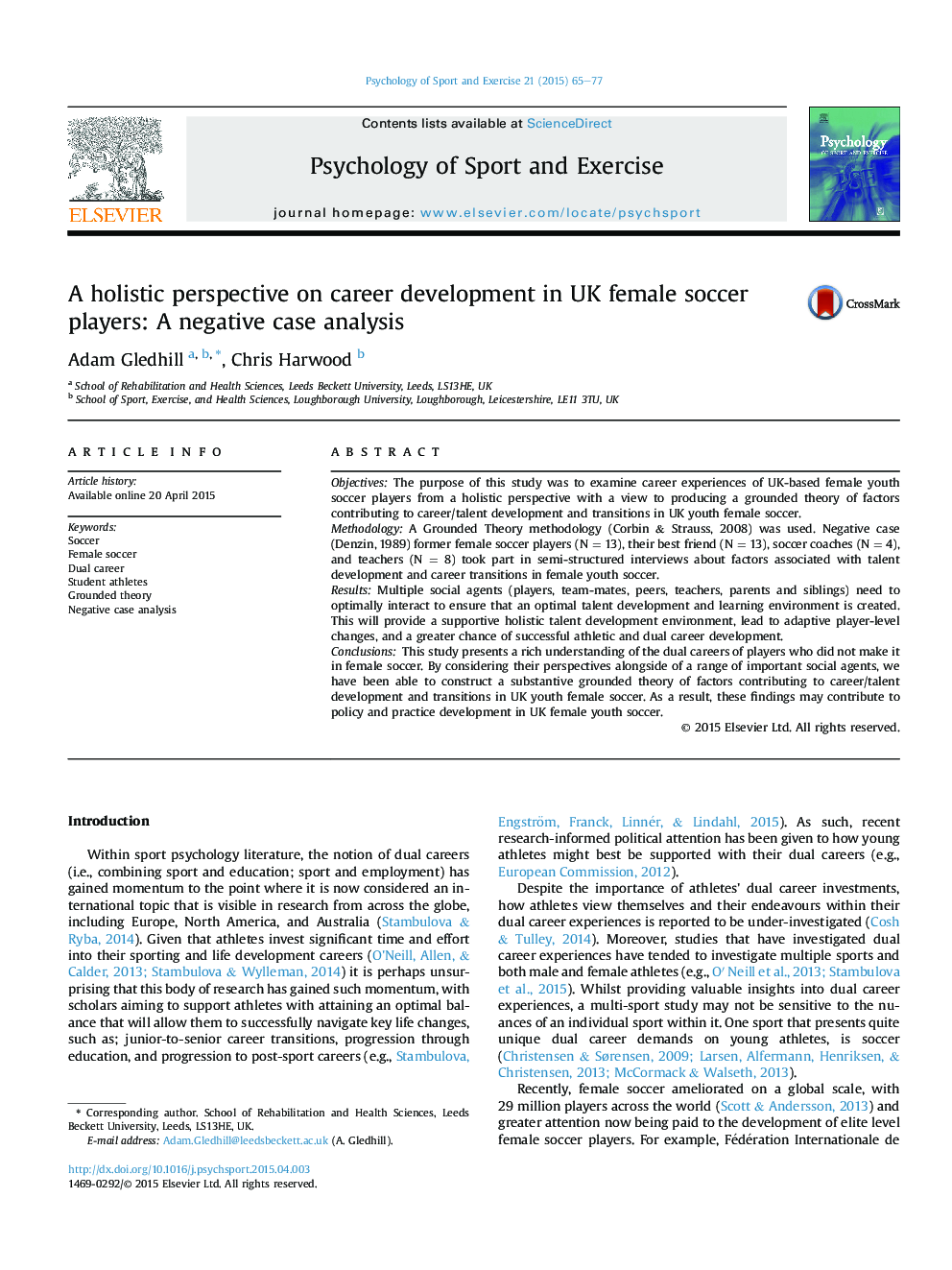| Article ID | Journal | Published Year | Pages | File Type |
|---|---|---|---|---|
| 894263 | Psychology of Sport and Exercise | 2015 | 13 Pages |
•We developed a grounded theory of factors contributing to career/talent development and transitions in UK youth female soccer.•Players and significant social agents must optimally interact to create an effective learning environment.•Functionally relevant challenges at an appropriate level are necessary for player development.•Role strain is a significant threat to talent development and career transitions in female soccer.•Internal and external player resources must be developed for players' careers to progress.
ObjectivesThe purpose of this study was to examine career experiences of UK-based female youth soccer players from a holistic perspective with a view to producing a grounded theory of factors contributing to career/talent development and transitions in UK youth female soccer.MethodologyA Grounded Theory methodology (Corbin & Strauss, 2008) was used. Negative case (Denzin, 1989) former female soccer players (N = 13), their best friend (N = 13), soccer coaches (N = 4), and teachers (N = 8) took part in semi-structured interviews about factors associated with talent development and career transitions in female youth soccer.ResultsMultiple social agents (players, team-mates, peers, teachers, parents and siblings) need to optimally interact to ensure that an optimal talent development and learning environment is created. This will provide a supportive holistic talent development environment, lead to adaptive player-level changes, and a greater chance of successful athletic and dual career development.ConclusionsThis study presents a rich understanding of the dual careers of players who did not make it in female soccer. By considering their perspectives alongside of a range of important social agents, we have been able to construct a substantive grounded theory of factors contributing to career/talent development and transitions in UK youth female soccer. As a result, these findings may contribute to policy and practice development in UK female youth soccer.
